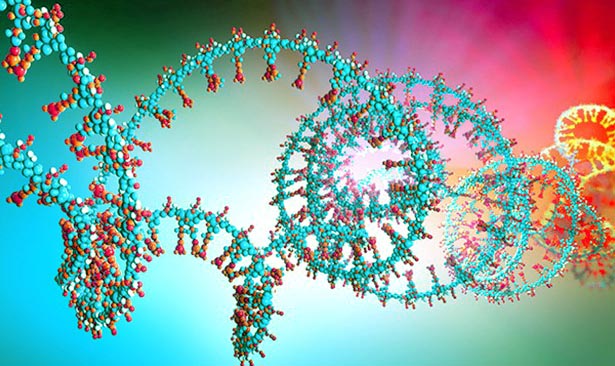Nikhil Prasad Fact checked by:Thailand Medical News Team Aug 16, 2024 8 months, 2 days, 2 hours, 44 minutes ago
Vaccine News:
A Promising Leap in Vaccine Technology
Researchers from Yantai University and Yantai Institute of Materia Medica-China have made significant strides in the development of engineered circular RNA (circRNA) vaccines. Unlike traditional mRNA vaccines, circRNA vaccines offer a more stable and efficient alternative, promising new avenues in disease prevention and treatment. This
Vaccine News report delves into the recent advancements, highlighting the potential of circRNA vaccines to revolutionize the healthcare landscape.
 China to launch circular RNA vaccines soon
What Are Circular RNA Vaccines?
China to launch circular RNA vaccines soon
What Are Circular RNA Vaccines?
Circular RNAs are a novel class of single-stranded RNA molecules with a covalently closed-loop structure. This unique formation makes them more resistant to degradation compared to their linear counterparts, such as mRNA. Due to their stability, circRNAs have emerged as a promising platform for vaccine development.
Advantages Over mRNA Vaccines
The success of mRNA vaccines in combating COVID-19 has paved the way for exploring other RNA-based therapies. However, mRNA vaccines have limitations, such as instability and the need for cold storage. CircRNA vaccines, on the other hand, are more stable, easier to store, and less prone to degradation, making them an attractive alternative.
One of the key advantages of circRNA vaccines is their ability to produce a higher yield of antigens, the substances that trigger an immune response. This efficiency could lead to stronger and longer-lasting immunity compared to traditional vaccines. Moreover, circRNAs do not rely on the 5’ cap for translation, a step necessary in mRNA, which further enhances their stability and efficacy.
The Science Behind CircRNA Vaccines
The Chinese research teams have been focusing on optimizing the design and synthesis of circRNA vaccines. These vaccines are created through a meticulous process that involves the design of linear RNA precursors, which are then circularized to form circRNA. The circularization process is crucial, as it determines the vaccine's stability and effectiveness.
Three main methods are used for the circularization of RNA molecules: chemical ligation, enzymatic ligation, and ribozyme methods. Each method has its own set of advantages and challenges. For instance, chemical ligation offers high specificity but is costly and complex, making it less suitable for large-scale production. Enzymatic ligation is more efficient but may result in by-products that need to be carefully purified. The ribozyme method, widely used in the synthesis of large circRNA fragments, is the most promising for mass production.
Overcoming Delivery Challenges
Delivering circRNA vaccines into cells is one of the most significant challenges in this field. Researchers are exploring various delivery methods, including lipid nanoparticles (LNPs), exosomes, and other novel carriers. LNPs, already used in a variety of mRNA vaccines, have show
n promise in protecting circRNAs and ensuring they reach their target cells.
Recent studies have demonstrated that circRNA vaccines delivered via LNPs can induce strong immune responses and are more stable than their mRNA counterparts. For example, a study by Qu et al. revealed that a circRNA vaccine encoding the receptor-binding domain (RBD) of the SARS-CoV-2 spike protein was effective in generating neutralizing antibodies and T-cell responses in mice, offering protection against COVID-19 variants.
Potential Applications and Future Directions
While circRNA vaccines are still in the early stages of development, their potential applications are vast. They could be used to combat infectious diseases, such as COVID-19, influenza, and HIV, as well as for cancer immunotherapy. The ability of circRNAs to induce strong and durable immune responses makes them a promising tool in the fight against hard-to-treat diseases.
In cancer treatment, circRNA vaccines could be designed to target specific tumor antigens, helping the immune system recognize and destroy cancer cells. This approach could complement existing therapies, such as immune checkpoint inhibitors, and provide new hope for patients with advanced or resistant cancers.
Challenges and Considerations
Despite their potential, several challenges must be addressed before circRNA vaccines can be widely adopted. These include optimizing the cyclization process to ensure high yields and low immunogenicity, improving purification methods, and developing scalable production techniques. Additionally, the safety of circRNA vaccines must be thoroughly evaluated through preclinical and clinical studies.
Researchers are also working on refining delivery methods to enhance the uptake and effectiveness of circRNA vaccines. For instance, the use of exosomes, which are natural carriers of RNA, could offer a more biocompatible and less toxic alternative to synthetic nanoparticles. However, the production and isolation of exosomes on a large scale remain challenging.
China plans to start clinical trials of circular RNA vaccines for COVID-19, Influenza and also for HPV as early as November this year.
Conclusion: A Bright Future for CircRNA Vaccines
The development of circRNA vaccines represents a significant advancement in vaccine technology. With their superior stability, efficiency, and potential for broad applications, circRNA vaccines could play a crucial role in the future of disease prevention and treatment. However, more research is needed to overcome the existing challenges and bring these promising vaccines from the laboratory to the clinic.
The study findings were published in the peer-reviewed journal Pathogens.
https://www.mdpi.com/2076-0817/13/8/692
For the latest
Vaccine News, keep on logging to Thailand Medical News.
Read Also:
https://www.thailandmedical.news/news/new-revolutionary-imaging-technique-reveals-circular-rnas-encoded-by-viruses-including-sars-cov-2
https://www.thailandmedical.news/news/breaking-news-chinese-researchers-discover-circrnas-encoded-by-sars-cov-2-virus-that-can-cause-cancer-millions-expected-to-get-cancer-eventually
https://www.thailandmedical.news/news/the-role-of-circular-rna-in-cardiovascular-diseases
